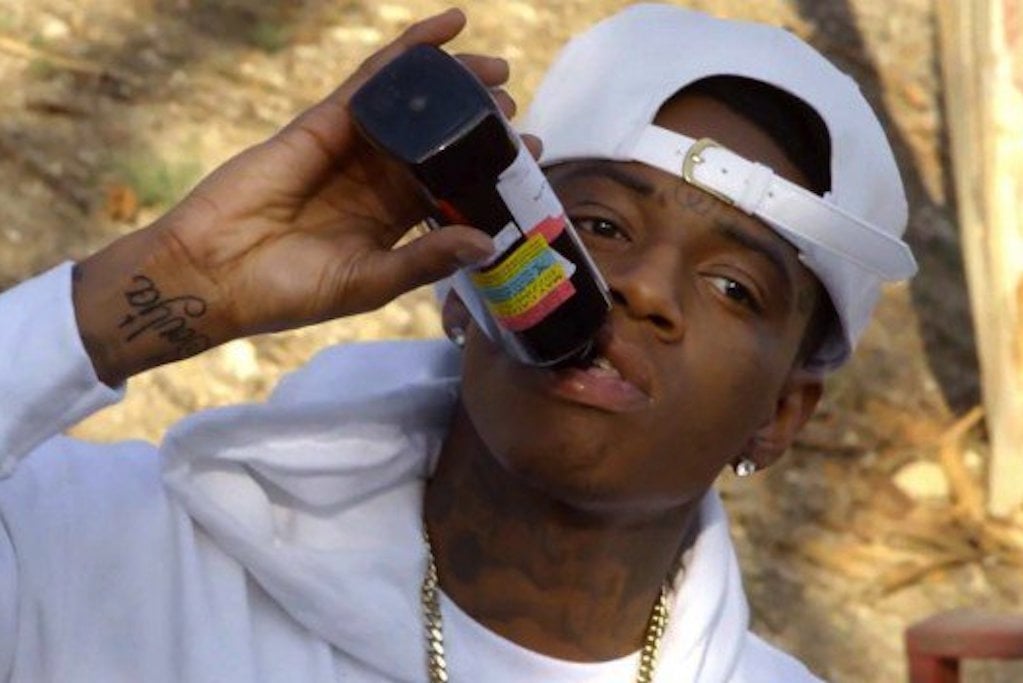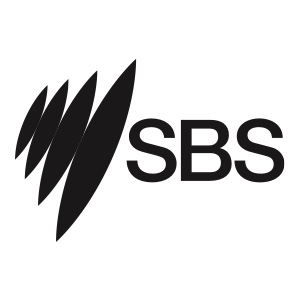Purple Drank Is So Popular In The US It’s Now Smuggled By Drug Cartels
Cough syrup can be harder to get than you think.


Watch Black Market now on SBS On Demand, where actor Michael K Williams meets society's outcasts in an unflinching look into the lives of the people who work in underworld economies.
Sizzurp. Purple Drank. Oil. Lean. We’ve all heard of the stuff (probably partially thanks to rappers like Lil Wayne, Future and Soulja Boy). But did you know that in the US, demand for a particular brand of cough syrup used in the drink is so high that Mexican cartels are smuggling a knock-off version into Texas and selling it for thousands?
It sounds absolutely crazy because it absolutely is. But as we see in ‘The Lean Scene’, an episode of Viceland’s hard-hitting docuseries Black Market, the underground economy of syrup smuggling is alive and thriving. To understand how and why the demand for Actavis — a prescription-strength codeine and promethazine cough syrup used to make purple drank — far exceeds the supply, you need to go back in time, all the way to the ’60s.
Lean first came onto the scene in Houston in the ’60s, when blues musicians would mix over-the-counter Robitussin with alcohol. Over time, the mix evolved, with its drinkers upping the ante to a purple coloured prescription-strength cough syrup called Actavis. Until the ’90s, ‘sipping lean’ was mostly localised to the Houston area, before it was introduced to the masses by the local rapper and sizzurp enthusiast, DJ Screw.
By 2008, DJ Screw has died of an overdose and Lil Wayne is telling MTV he can’t quit the stuff because the withdrawals are “like death in your stomach”. In 2016, Weezy makes another appearance in the real-life drama, Purple Drank Will Kill You In The End, suffering two seizures aboard his private plane.
It turns out that ingesting massive amounts of codeine in such high doses is both addictive and life-threatening, predominately because it slows your heart rate, suppressing your ability to breathe. Add the mountains of sugar people are ingesting from common mixers like Sprite and Mountain Dew and you’re a walking Type 2 target. Last but not least, there are the dental issues. One 36-year-old featured in the Black Market episode admits to spending $15,000 on his teeth after they rotted from years of abuse.
Apparently not all press is good press in the eyes of Actavis. The company made an unprecedented move when it placed people over profit and pulled the product from the shelves in 2014. As documented in ‘The Lean Scene’, an entire bottle of Actavis would go for around $100 in 1993. Nowadays, due to its rarity, a pint alone will go for upwards of $2,000 on the black market. Why? The answer is simple: Everyone’s addicted.
After Actavis’ discontinuation, other generic brands began to flood the market, namely Hi-Tech, a red coloured opioid-based cough syrup. The problem with Hi-Tech is that lean devotees don’t like the taste as much, nor its colour — after all, no one’s written a song called ‘Red Drank’ yet. That’s when the Mexican Cartel entered the scene, manufacturing a carbon copy of Actavis under a super stealthy new name no one will link to its predecessor: Actavisa. Made in Guadalajara, Actavisa is smuggled in fruit trucks across the border to Texas, where it is then driven to California and sold on the black market.
The Black Market episode is both heartbreaking and eye-opening, shedding light on a bunch of impressionable young people hooked on a drug glamourised by hip-hop culture. “After you try to sip it to be cool, you start getting hooked, and once you’re hooked, that’s when you start really spending your bread on it, and that’s when its starts consuming you,” says one LA-based user.
Next time you listen to Soulja Boy’s ‘Molly With That Lean’, spare a thought for the thousands of Americans now addicted to the lethal concoction, and then proceed to turn off the song, because you’re listening to Soulja Boy, dude.
–
Follow Michael K Williams’ journey into underworld economies by heading to the Black Market page on SBS On Demand.